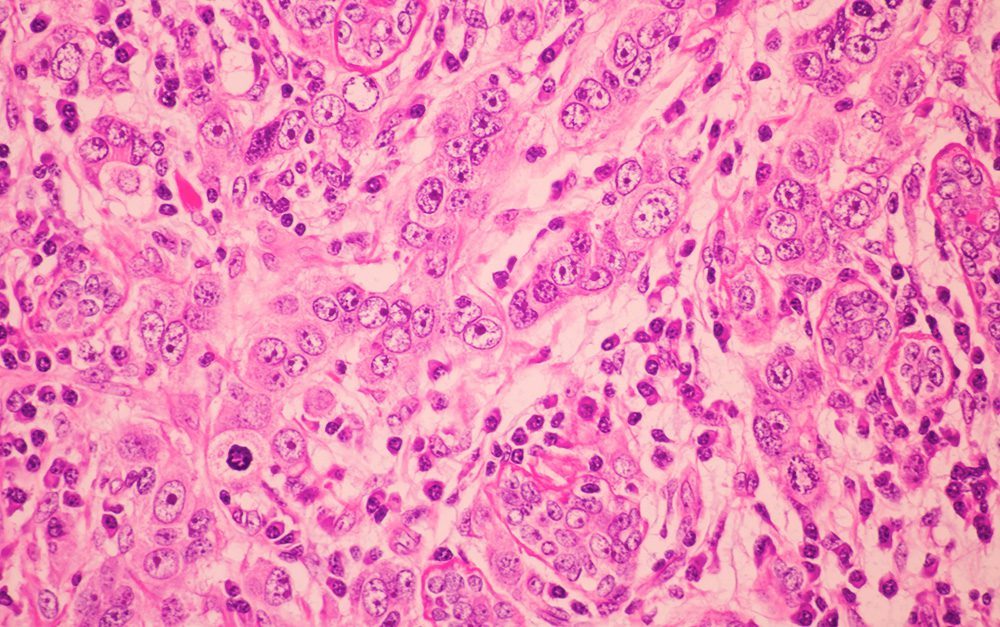Nearly 1.7 million people in this country will be diagnosed with cancer in 2015, according to the American Cancer Society. While treatments and survival rates continue to improve, the incidence of some cancers are on the rise — including childhood cancers, leukemia and testicular cancer.
We’re experiencing a cancer epidemic, and evidence is growing ever stronger that pesticide exposure is a key contributor to this disturbing trend.
Cancer is not normal
It’s become a shared part of our culture. More than 500,000 men, women and children die from cancer each year, leaving millions of grieving siblings, parents, children, neighbors and friends in the disease’s wake.
Entire industries have arisen to cope with the side-effects of cancer treatment, as patients and their families struggle to live “normal” lives, and enterprising businesses rush to fill the need. But cancer is not normal.
It’s unclear exactly how much of this country’s cancer results from exposure to cancer-causing chemicals, but according to the 2009 report from the prestigious President’s Cancer Panel, the linkage has been significantly underestimated — and decisive action is long overdue.
An excerpt from the Panel’s letter to President Obama:
The American people — even before they are born — are bombarded continually with myriad combinations of these dangerous exposures. The Panel urges you most strongly to use the power of your office to remove the carcinogens and other toxins from our food, water, and air that needlessly increase health care costs, cripple our Nation’s productivity, and devastate American lives.
Pesticides & cancer
Chemicals can trigger cancer in a variety of ways, including disrupting hormones, damaging DNA, inflaming tissues and turning genes on or off. Many pesticides are “known or probable” carcinogens and, as the President’s Panel notes, exposure to these chemicals is widespread.
Children are especially at risk of developing cancer from pesticide exposure, and childhood cancer rates continue to rise. Studies show that pesticide exposure during pregnancy and throughout childhood increase the risk of cancer among children.
Girls who were exposed to DDT before they reach puberty were found to be five times more likely to develop breast cancer in middle age, according to the President’s Cancer Panel. And researchers recently found that DDT exposure in the womb quadrupled breast cancer risk.
When either parent is exposed to pesticides before a child is even conceived, that child’s risk of cancer goes up as well.
Farmers, farmworkers and their families tend to be exposed to more pesticides than the general population. They also experience higher rates of a cancer. For example:
- Farmers and pesticide applicators have higher rates of prostate cancer.
- Women who work with pesticides suffer more often from ovarian cancer.
- Cropduster pilots and farm women have higher rates of skin cancer.
An ounce of prevention
Despite the growing scientific consensus that environmental contaminants are causing cancer in humans, research continues to focus on improving treatments and finding a cure.
Our free-market system is not designed to encourage investment in disease prevention, and — let’s be honest — major corporations are profiting from both the products that cause cancer and the products that treat it. We’re not saying it’s anyone’s intention to profit from cancer; that’s just the way our system works.
Biologist and cancer survivor Sandra Steingraber comments on the links between cancer and pesticides in the President’s Cancer Panel report:
We have sprayed pesticides … throughout our shared environment. They are now in amniotic fluid. They’re in our blood. They’re in our urine. They’re in our exhaled breath. They are in mothers’ milk … What is the burden of cancer that we can attribute to this use of poisons in our agricultural system? … We won’t really know the answer until we do the other experiment — which is to take the poisons out of our food chain, embrace a different kind of agriculture, and see what happens.
Steingraber’s book (and documentary film) Living Downstream tells the story of her own “journey” as a cancer survivor, and documents her scientific investigations that expose a simple, tragic truth: As a society, we are so busy treating cancer and searching diligently for a cure that we’re failing to tackle its causes.







